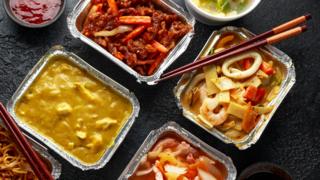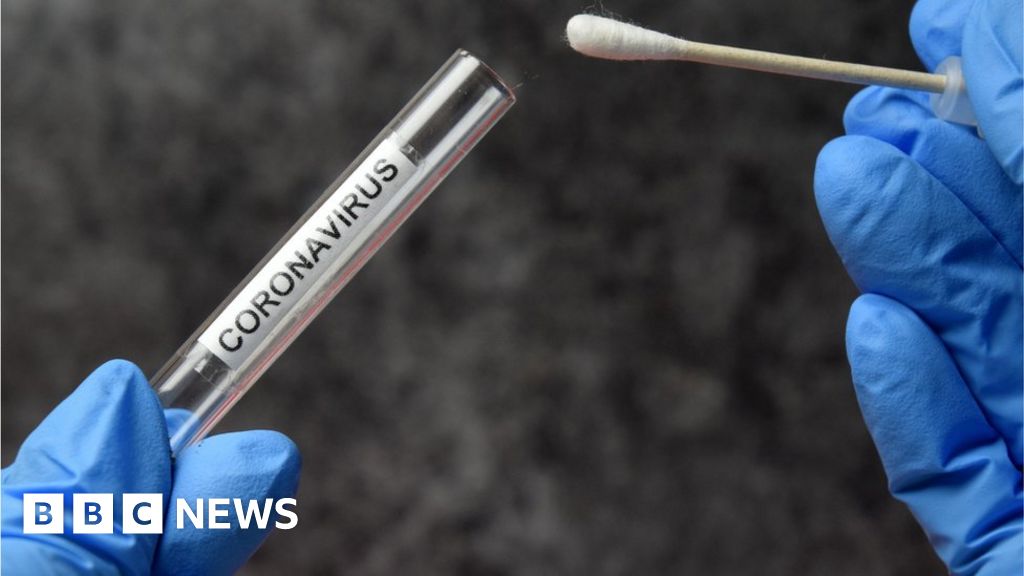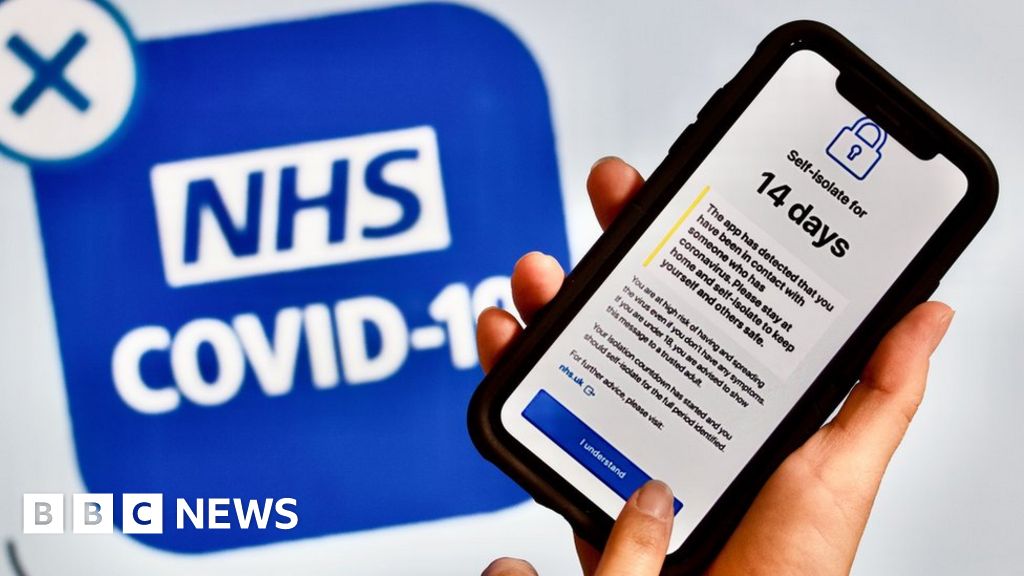 Image copyright
Getty Images
Image copyright
Getty Images
There have been long queues as drive-through restaurants reopen, pubs have sold takeaway pints in the warm weather and supermarket deliveries remain elusive for many.
But what are the Covid-19 risks if you get a takeaway or a delivery?
What about takeaways?
Many local restaurants have reinvented themselves as takeaways.
Covid-19 is a respiratory illness; there is no evidence it can be spread via any food or food packaging. And reputable chains and good restaurant kitchens are most likely to be geared towards professional, hygienic food preparation, meaning there would be minimal risk from a freshly cooked takeaway meal.
With social distancing and extra hygiene measures in place, High Street chains - such as Pret a Manger - now offer customer takeaways and online delivery. Marks and Spencer has reopened 49 of its cafes for takeaway only.
Dozens of KFC outlets are reopening for either delivery or drive-through purchases - or both. McDonald's and Burger King have also reopened some drive-through restaurants - prompting long traffic queues.
Deliveroo and Just Eat have issued guidance on how their riders can stay safe and make food deliveries without touching restaurant packaging.
Image copyright Getty Images Image caption Delivery drivers queue at a McDonald's in east LondonShould I eat with my hands?
If you get a takeaway delivery, the risk of packaging contamination can be minimised.
"Empty the contents [into a clean dish], dispose of the packaging into a refuse bag and wash your hands thoroughly before you eat," advises Prof Sally Bloomfield, of the London School of Hygiene and Tropical Medicine.
"Take food out of a container with a spoon and eat it with a knife and fork - not your fingers."
It might be better in the current circumstances to order hot, freshly cooked food, rather than cold or raw items. The Food Standards Agency does stress the risk from food is low and "there is no reason to avoid having ready-to-eat food delivered if it has been prepared and handled properly".
For the most cautious and vulnerable though, careful preparation and cooking may be reassuring.
"With a pizza for example, if you wanted to be really safe, you could even pop it into the microwave for a couple of minutes," Prof Bloomfield adds.
Image copyright Getty ImagesWhat about takeaway drinks?
Some licensed premises - forced to shut because of the coronavirus restrictions - have continued to sell drinks to takeaway customers.
Pubs and bars should enforce social distancing and extra hygiene measures if they are open - such as making sure staff wear gloves when handling disposable cups.
It is legal to drink in public in the UK, except in areas where Public Space Protection Orders are in place. Local councils in Scotland set their own rules on when and where you can drink. But social distancing rules remain, and the police have powers to confiscate alcohol and move people on.
Image copyright Getty Images Image caption Signwriting in Brighton as coronavirus restrictions are easedHow safe are supermarket deliveries?
Delivery slots permitting, a home food drop is less risky than a trip to a supermarket as you will avoid other shoppers.
Any risk would be the possible contamination of food or packaging - handled by other people - or from the delivery driver.
You could leave a note on your door asking drivers to ring the bell and step back, but Prof Bloomfield says there's no such thing as "zero risk".
"For contained or packaged goods, either store them for 72 hours before using them - or spray and wipe plastic or glass containers with bleach [carefully diluted as directed on the bottle].
"For unwrapped fresh goods, which could have been handled by anyone - wash thoroughly under running water and leave to dry," she adds.
Prof Alison Sinclair, a virology expert from the University of Sussex, adds: "There should be no more risk from using online deliveries than using a friend or volunteer to collect groceries for you."
Some experts also advise using plastic bags only once during this pandemic.
But if I do go to the supermarket?
Coronavirus spreads when an infected person coughs small droplets - packed with the virus - into the air. These can cause an infection if they are breathed in, or potentially if you touch a surface they have landed on.
So going shopping and mixing with other people does carry a risk. That is why social distancing - keeping at least 2m (about 6ft) from others - is so important, and many shops are enforcing it.
Image copyright Getty Images Image caption Queuing outside an Asda store in West YorkshireSupermarkets can provide an "ideal setting" for virus transfer, says Prof Bloomfield. "Many people are touching and replacing items, checkout belts, cash cards, car park ticket machine buttons, ATM payment buttons, paper receipts etc... Not to mention being in the proximity of several other people."
There are ways to offset these risks:
Wash hands for 20 seconds with soap and water, or with alcohol-based hand sanitiser before and after shopping Treat surfaces as if they may be contaminated, meaning you avoid touching your face after handling shopping trolleys, baskets, packages and produce Use contactless payment methods
 5 years ago
1048
5 years ago
1048 

